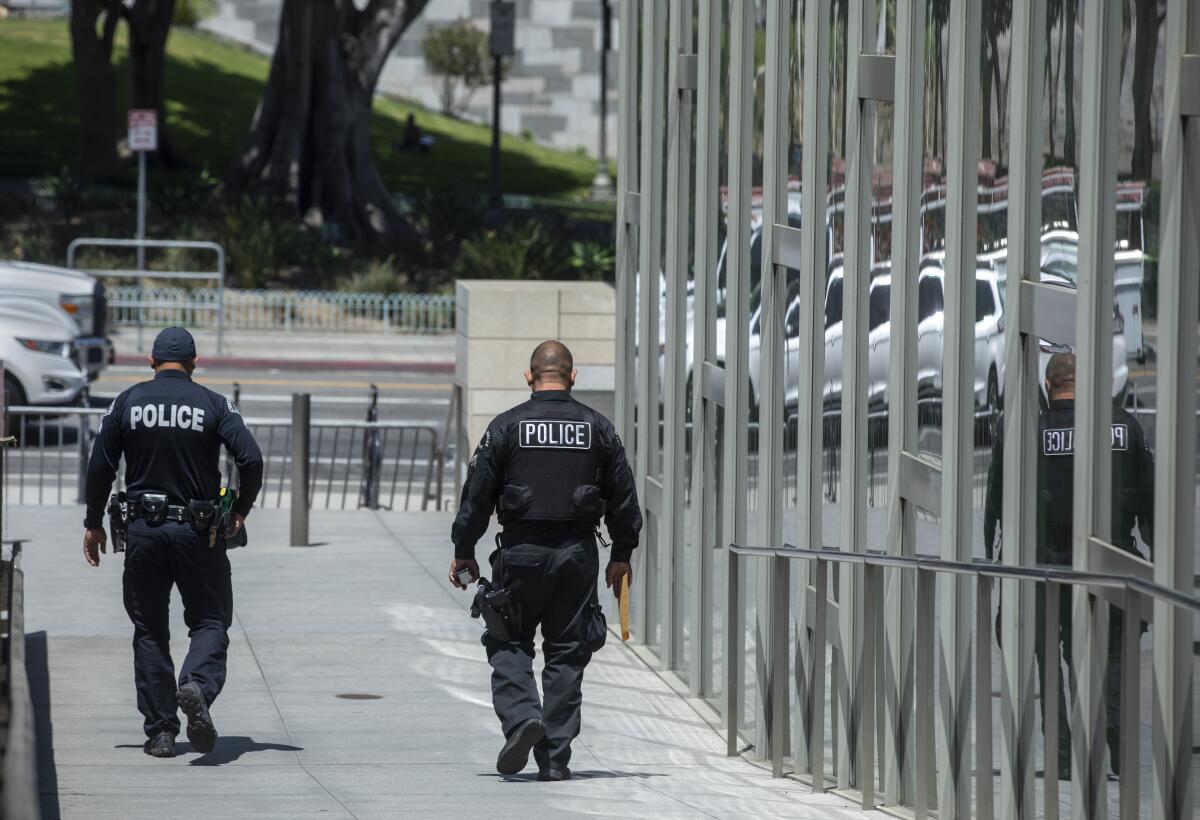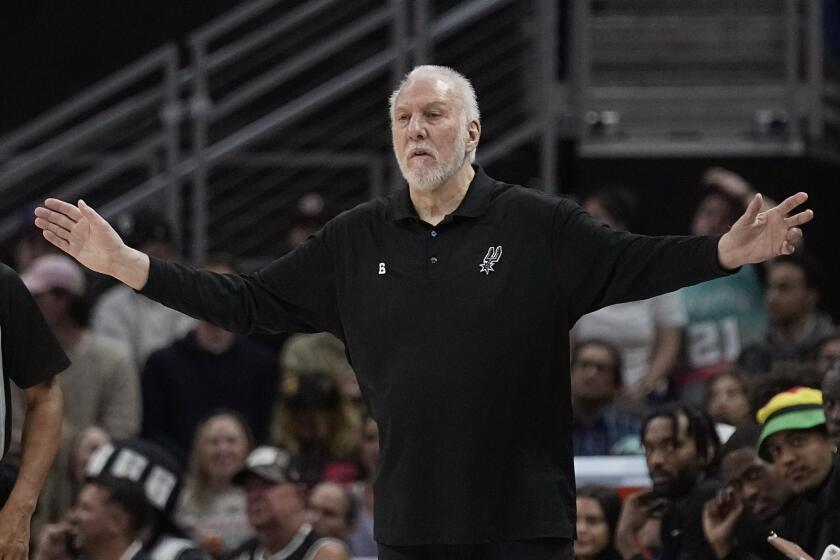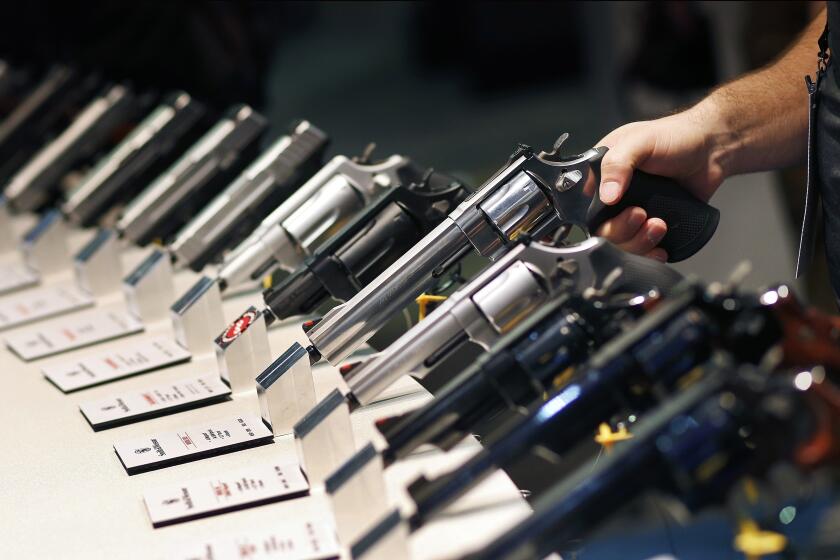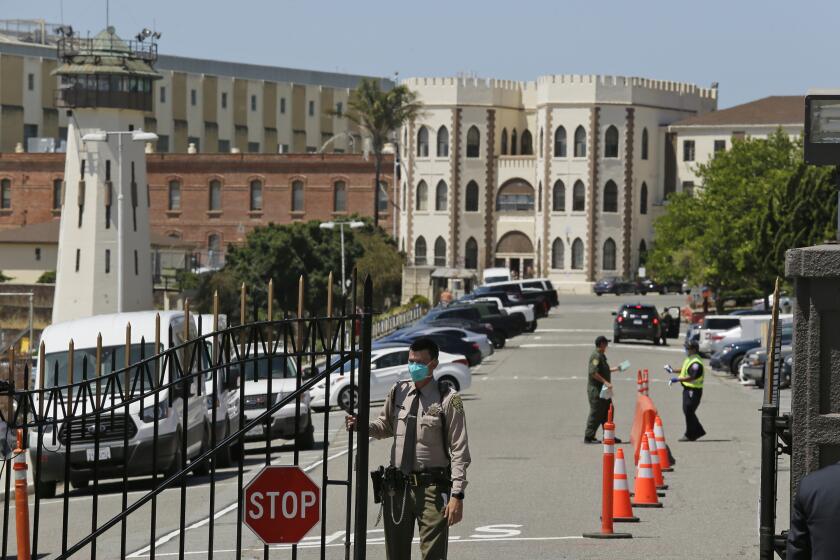Bass is right to add cops in L.A., but quality matters more than quantity

- Share via
Mayor Karen Bass’ push to increase the number of police officers on the streets of L.A. may be viewed by some as a betrayal of progressive ideology, but the reality is people are afraid — and justifiably so.
Over the past three years, the Los Angeles Police Department has been hemorrhaging officers — down almost 1,000 compared with 2019 — and struggling to recruit replacements. The department has resorted to asking former officers to come out of retirement.
Opinion Columnist
LZ Granderson
LZ Granderson writes about culture, politics, sports and navigating life in America.
Meanwhile, anyone paying attention to the news in Los Angeles is understandably on edge. In the past 12 months, 664 people were killed in Los Angeles County. There have been videos of smash-and-grab robberies on the news and on social media, and high-profile home invasions. Bass delivered her first “state of the city” address on Monday, just days after a spate of so-called street takeovers — this time in Compton — resulted in damaged buildings and thousands stolen from businesses.
The rise in crime cannot solely be attributed to the dwindling of the LAPD, but under these circumstances, for Bass not to address the exodus of officers would be irresponsible.
Around 90% of Americans support universal background checks for gun purchases. So why won’t GOP lawmakers let it happen?
Of course the city needs more police officers. That was one of the issues Bass campaigned on. What she has to avoid is creating an administrative culture in which the premium is placed on quantity of policing rather than quality, in an attempt to fulfill that campaign promise.
She also must address corruption. A police department that is corrupt is far more damaging to public safety than one that is understaffed. And by corrupt, I’m not just referencing the Derek Chauvins of the world — the former Minneapolis police officer who used his knee to pin George Floyd at the neck for nearly 10 minutes, killing him, back in 2020. I’m referring to a “back the blue” culture that rushes to defend the inexcusable. A culture in which someone like Chauvin could accumulate 18 official complaints and still have a job. A culture in which Chauvin could be indicted on charges of hitting a 14-year-old in the head with a flashlight so hard that he needed stitches and later holding the teen in a neck restraint until the boy lost consciousness — and still Chauvin’s job was safe.
The challenge for Bass and other mayors facing increased crime with decreased police forces is not just finding the right number of officers to serve a community but finding the right people to become officers so the department doesn’t terrorize a community. Our streets do not need anymore people who corroborate falsified police reports in an effort to fit in.
After kidnappings of Americans, Mexico faulted the U.S. for ignoring the “serious problem of social decay.” But U.S. lawmakers would rather talk about invading.
Law enforcement is a noble profession, but not everyone who wears the badge is a noble person. There will always be bad apples in policing. But there doesn’t always have to be a culture that cultivates and protects bad apples.
As Bass sets out to add about 400 officers, the odds are, there will be mistakes made during the recruiting process and questionable characters will be sworn in. It’s going to happen because humans are involved. The missteps will become apparent with future wrongdoing by the LAPD. How Bass handles those moments is where her political ideology regarding criminal justice will truly be revealed.
There is a man in Australia by the name of Roger Rogerson who is serving a life sentence for murder. His nickname used to be “Roger the Dodger” because for decades Rogerson had been able to escape authorities despite his connection to a variety of violent crimes. In 1981, Rogerson shot and killed a drug dealer. When he was cleared of wrongdoing, the victim’s grieving girlfriend accused the police department of a cover-up. She was later found dead in a park. A gangster charged with her death was acquitted. That gangster and Rogerson were accused of being in the heroin and arms business together.
Did I mention Rogerson was a decorated police officer at the time? In 1984, he was accused of trying to have a colleague, drug detective Michael Drury, killed. Drury was shot through a kitchen window but survived.
Rogerson was acquitted, but this time around he was at least fired.
He took on a variety of blue-collar jobs to support himself before landing — of all things — a gig talking about crime and police work for News Corp. That would be Rupert Murdoch’s News Corp., the Australian business that brought us the popular reality TV show “Cops,” in which the “bad boys” never wore blue.
Our society knows how to interrupt the cycle of crime. Here’s a hint: It has more to do with funding schools than building prisons.
Anyway, in 2016 Rogerson’s luck finally ran out, and he was sentenced to life in prison for the murder of a different drug dealer. But it’s not quite right to say Rogerson had been “lucky.” Considering the span of his criminal behavior, and his role in law enforcement, it feels more like protection. The kind of protection that has undermined the trust between law enforcement and citizenry in this country ever since Congress thought it was a good idea to let former Confederate soldiers become sheriffs.
Trust is at the heart of the public safety challenge not only for Bass but also for many of her contemporaries: developing a system that increases police presence in our streets without increasing crime committed in our departments.
More to Read
A cure for the common opinion
Get thought-provoking perspectives with our weekly newsletter.
You may occasionally receive promotional content from the Los Angeles Times.














